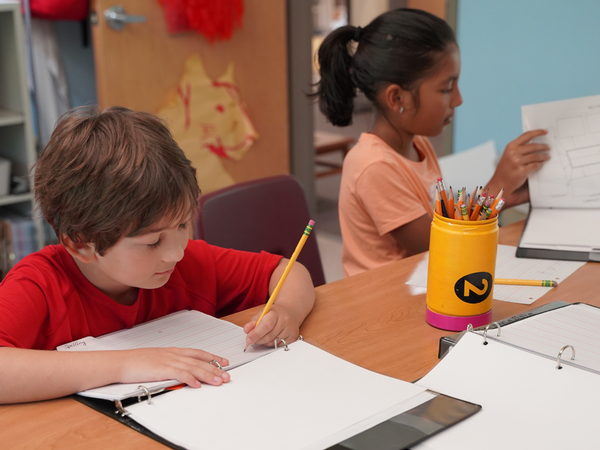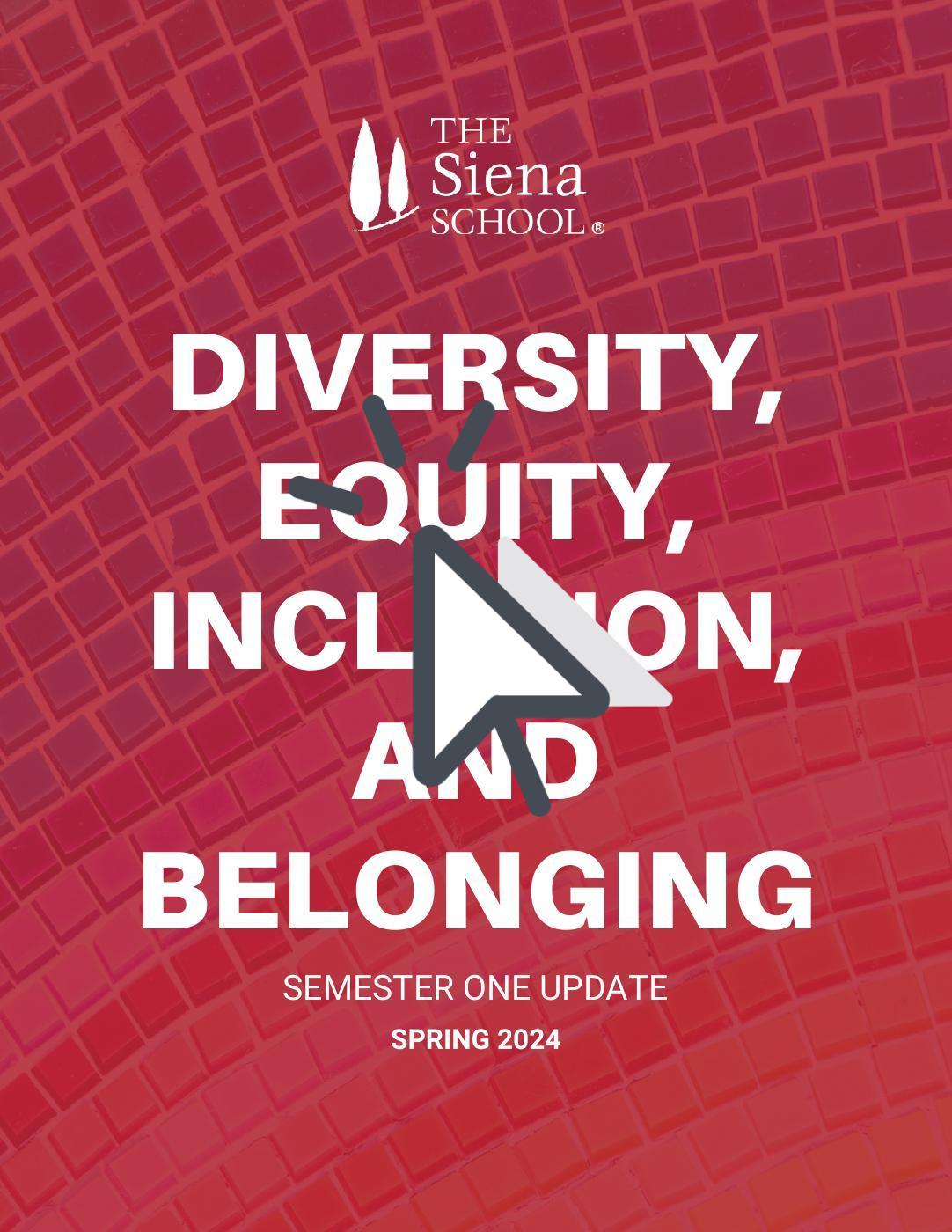Empowering students with language-based learning differences

Siena Blog



The Siena School Blog
Discover, Learn, Celebrate, and Empower
Welcome to Siena's blog, your source for helpful, cutting-edge resources tailored to teachers, parents, and other advocates in the learning differences community. We are dedicated to providing a wealth of curated knowledge spanning various topics, ranging from dyslexia advocacy and awareness to classroom teaching strategies, heritage month profiles, and social and emotional health.
Common Acronyms in LD Education: Understanding the Language

Every professional field has its own lingo, and special education is no exception. As part of Dyslexia Awareness Month 2023, Siena is pleased to offer a short, useful guide to terms that parents will read and hear often as they navigate their child’s education.
Terms such as LD (Learning Differences), IEP (Individualized Education Program), LBLD (Language-Based Learning Differences), and SLD (Specific Learning Disability/Disorder) are common. Parents could hear these often when first connecting with an admissions representative or learning specialist, as well as when going through testing, the IEP process, and discussions with friends and neighbors..
Parents new to the LD community might be wondering about understanding the process and language around an LD diagnosis as they take the appropriate next steps.
Common Terms in the LD Community
Acronyms in the LD community are a useful shorthand for frequently used terms that are integral to the process. This helps make conversations more fluid and understandable during key times, such as:
- neuropsychological evaluation,
- IEP consultation,
- meeting with teachers or administrators
- school admissions materials, and
- discovery call or tour with an admissions team member.
Parents might talk with various specialists, school administrators, advocates, and so on, and having a shared language means having a shared understanding during such an important time. Here are some commonly used acronyms in LD education:
Testing and Diagnosis
Twice Exceptional | |
504 Individual Education Plan | |
ADHD | Attention Deficit/Hyperactivity Disorder |
Auditory Processing Disorder | |
Children and Adults with Attention-Deficit/Hyperactivity Disorder | |
EF | Executive Functioning |
GT/LD | Gifted and Talented/Learning Difference |
LBLD | Language-Based Learning Differences |
Orton-Gillingham reading method | |
OHI | Other Health Impaired |
Multisensory Math | |
SLD | Specific Learning Disability |
SLI | Speech-Language Impairment |
SLP | Speech Language Pathologist or Structured Literacy Program |
Wechsler Individual Achievement Test | |
Wechsler Intelligence Scale for Children | |
Woodcock-Johnson Psychoeducational Battery |
Accommodations and Supports
AT | Assistive Technology |
DC Capital Area Branch of the International Dyslexia Association | |
ESY | Extended School Year Services |
International Dyslexia Association | |
Individualized Education Program | |
Learning Disabilities Association | |
OT | Occupational Therapy |
Washington Independent Services for Educational Resources |
Dyslexia Resources for Families
- Frequently Used Acronyms in Education — Great Schools
- Common Acronyms For Special Education — Plainfield (IN) Community School
- EDFacts Acronym List (downloadable PDF) — US Department of Education
- Parent Resource Center — Weinfeld Education Group
- Dyslexia Awareness Month — University of Michigan
Families in the LD community can also visit Siena’s resources page, student profile, and glossary of terms for additional help. The Siena blog has several posts for parents and community, including ones about the importance of early dyslexia diagnosis and intervention and building confidence in LD students.
The Siena School, a national leader in dyslexia education, serves bright, college-bound students with language-based learning differences on campuses in Silver Spring, MD (grades 3-12) and Oakton, VA (grades 3-11).
Why Is Early Intervention Important?

Early Intervention for Learning Differences
When understanding students’ learning differences, the earlier a diagnosis comes, the better. There can be a lot to think about and research, so let Siena help you get started with the process of understanding why it’s crucial to address dyslexia, dysgraphia, and other language-based learning differences as soon as possible in a child’s life.
Ultimately, early adaptation and accommodation can lead to early attention for students who need it.
Learning Differences, Early Intervention, and Self-Confidence
If a specific LD diagnosis comes in a student’s early elementary years, for instance, then the ideal time to start finding a specialized program or school is right then. Early identification of dyslexia or another language-based learning difference helps families identify their students’ specialized learning needs and begin adopting strategies for success. According to the National Center for Learning Disabilities,
In young children, brain networks for information processing are still being formed, which means that early experiences, and interventions, can have a greater impact on students when they are young. Early screening can result in children receiving extra help sooner and prevent them from falling behind.
Early academic support typically accompanies early social-emotional awareness and self-confidence. As this Child Mind Institute blog post stresses,
[W]orking with children with learning disabilities should be as much about addressing self-concept and self-confidence as it is academics and learning strategies.
Assuming you have gotten your child an evaluation, seen that a plan of support and remediation has been set up for them at school, and checked in regularly to ensure it’s being implemented, you can focus on helping bolster their confidence both in and out of the classroom.
As specific learning needs are identified at kindergarten or early elementary ages, students will begin gaining the self-confidence, structure, and learning strategies that will carry them through their educational journeys.
Recognizing the importance of early diagnosis and prompted by the success of 3rd grade at Siena Northern Virginia, Siena will be adding a satellite campus in Silver Spring for grades 3-4 beginning with the 2024-25 school year. With this upcoming addition of Grade 3 as an option for families, Siena will continue to refine its students’ elementary experience with necessary early intervention, lessons in self-advocacy, and multisensory reading techniques.
“The earlier we can intervene and provide students with an appropriate and welcoming learning environment,” Siena Silver Spring Head of School Katie Douglas adds, “the more time they will have to let their passions and talents shine.”
Resources for Early Dyslexia Intervention
There are ample resources for families seeking early diagnosis and intervention for children with learning differences:
Recognizing and Diagnosing Learning Differences
- Early Signs of Learning Challenges and How To Help Kids With LD Build Confidence (Child Mind Institute)
- Early Childhood Intervention Makes a Difference (LDA)
- It Took Me Too Long to Decode My Daughter’s Dyslexia and Who Can Diagnose LD and/or ADHD (Reading Rockets)
- How to Recognize Signs of Potential Learning Disabilities in Preschool (Edutopia)
- What to Do If Your Child is Falling Behind in School and Learning Disabilities & Differences: What Parents Need To Know (Healthy Children from the American Academy of Pediatrics)
- The LD Checklist: Recognize and Respond and Why Early Screening (National Center for Learning Disabilities)
- Why is Early Intervention So Important for Kids with Dyslexia? (National Center on Improving Literacy)
National and Local Organizations
- Atlantic Seaboard Dyslexia Education Center
- International Dyslexia Association
- National Center for Learning Disabilities
- Learning Disabilities Association of Virginia
- Learning Disabilities Association of Montgomery County
See also Siena’s Resources page for additional organizations and links regarding dyslexia, ADHD, parent support, and much more. School counselor Haley Scranton wrote a blog post on confidence and learning differences as part of Mental Health Awareness Month 2023.
Overall, early diagnosis of dyslexia or another language-based learning difference can put students on a path to a supportive learning environment that meets their academic, social–emotional, and self-esteem needs.
Siena’s mission-focused innovative dyslexia education is designed for students in grades 3-12 with language-based learning differences on campuses in Silver Spring, Maryland, and Oakton, Virginia.

